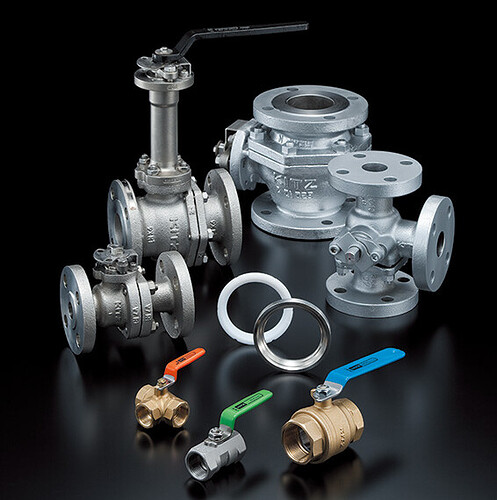As technology advances and industries evolve, the need for efficient and reliable valve systems becomes increasingly important. One type of valve that has proven its worth time and again is the ball valve. With its simple yet effective design, the ball valve offers numerous advantages that make it a popular choice in a wide range of applications.
A ball valve is a quarter-turn valve that utilizes a hollow, perforated ball to regulate the flow of fluids. The ball has a hole through its center, allowing fluid to pass through when aligned with the flow inlet. By rotating the valve handle 90 degrees, the ball pivots, blocking the flow and closing the valve. This straightforward operation provides easy visual confirmation of the valve’s status, as the handle lies flat when open and stands perpendicular when closed.
One of the key advantages of ball valves is their durability. They are designed to withstand significant wear and tear, making them suitable for applications that involve frequent cycling. Even after extended periods of disuse, ball valves reliably close securely, ensuring tight shut-off and minimal leakage.
Ball valves are available in a variety of materials, including steel, brass, bronze, and plastic. This extensive range allows for customization and adaptation to specific operating conditions and environmental factors. Whether it’s corrosive substances in the process industry or high-pressure steam in power generation, there is a ball valve material that can withstand the demands of the application.
The versatility of ball valves extends beyond material options. They are available in various sizes, from small valves suitable for plumbing applications to large valves used in industrial settings. This flexibility enables their use in a broad spectrum of industries and systems.
Let’s take a closer look at some of the applications where ball valves excel:
- Plumbing: Ball valves are commonly employed in plumbing systems to control the flow of water. Their ease of operation and reliable shut-off make them ideal for residential, commercial, and industrial plumbing applications.
- Process Industry: In the process industry, ball valves play a vital role in controlling the flow of fluids such as oil, gas, and chemicals. Their durability and resistance to corrosion make them well-suited for harsh and demanding environments.
- Power Generation: Ball valves find extensive use in power generation facilities to regulate the flow of steam and water. The ability to handle high temperatures and pressures is crucial in these applications.
- Aerospace: The aerospace industry relies on ball valves to control the flow of fluids, including fuel and hydraulic fluid. Their compact design, lightweight construction, and ability to withstand extreme conditions make them a preferred choice in aircraft systems.
- Medical: Ball valves are utilized in medical applications to control the flow of fluids like blood and saline. Their reliable shut-off and ease of operation are essential for maintaining the accuracy and safety of medical procedures.
Ball valves are manufactured by various companies specializing in valve production. A reputable ball valve manufacturer ensures the quality and reliability of their products, meeting industry standards and customer requirements. When selecting ball valves for specific applications, it is important to consider the manufacturer’s expertise and track record.
While ball valves offer numerous advantages, it’s important to consider some limitations as well:
- Cost: Compared to other types of valves, ball valves can be more expensive. However, the long-term durability and reliability they provide often outweigh the initial investment.
- Leakage: Improper installation or inadequate maintenance can lead to leakage in ball valves. It is crucial to follow proper installation procedures and conduct regular maintenance to ensure optimal performance.
- Clogging: Ball valves can become clogged if used with fluids that contain contaminants or debris. Regular inspection and cleaning are necessary to prevent any potential blockages.
In conclusion, ball valves are a versatile and reliable option for various applications. Their durability, ease of operation, and adaptability to different materials and sizes make them a preferred choice across industries. When selecting ball valves, it is advisable to work with a reputable ball valve manufacturer that can provide high-quality products and technical support. While they may have some drawbacks such as cost and potential leakage, these issues can be mitigated with proper installation, maintenance, and selection of the right valve for the intended application. Overall, ball valves provide an efficient solution for controlling fluid flow and are an indispensable component in many industrial, commercial, and residential systems.
